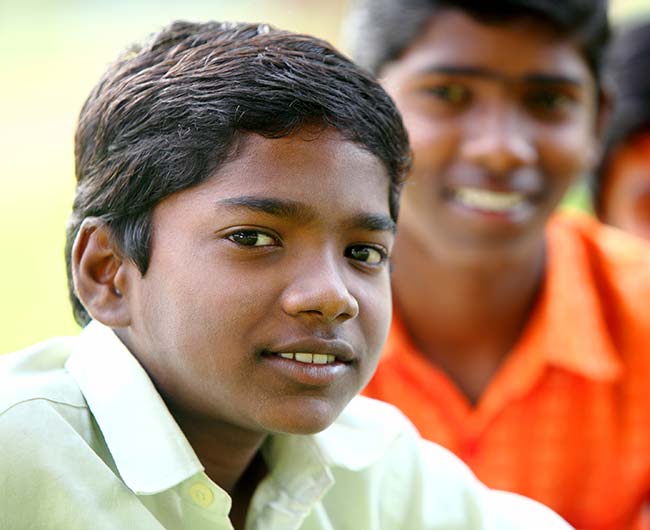Unaccompanied Children
provide a home for an unaccompanied child in search of safety
Every year young people from other countries journey to the United States alone, without parents or family to accompany them. They make this dangerous journey in order to escape abuse, violence, and trafficking. Some of these youth are eligible to pursue legal protective status, but they need a safe home and the support of a family while they cope with the uncertainties of the U.S. Immigration System.

can you provide a home for an unaccompanied child?
What is Long Term Foster Care? This program serves unaccompanied youth while they are working on legal relief in the United States. These youth do not have any identified sponsors to reunite with, and have a likely pathway to legal relief in the U.S.
The LTFC program allows the youth to live in licensed foster homes, where they can live with a family, attend public school, and begin making connections with a community. Once a youth in the LTFC program achieves legal status, they may become eligible for the URM program.
how is this program different from traditional foster care?
Foster homes who support unaccompanied children through LTFC follow the same state guidelines for licensure, training, and on-going oversight. A licensed foster home for the LTFC program may also foster youth in the URM program.
Foster parents will receive additional training, above the standard requirements, to gain a deeper understanding of the youth in this program, the federal rules and regulations, and gain skills on how to responsively support these youth. Additionally, the LTFC program has robust therapeutic services offered to each youth in the program.

What Is the Need?
The LTFC program is designed to serve youth in Denver metro and the Northern Colorado area.
Am I equipped to help someone who doesn’t speak English to become part of my home and community?
LFSRM is looking for individuals and families who can provide a safe and loving home. A case manager is assigned to each family to provide specialized training and individualized support that helps the family navigate the lives of the youth. This includes the youth’s transition into your home, their English language development, their enrollment in public school, their arrangement of medical services and specialized mental health care as needed. A monthly stipend is provided to the family to assist in meeting the youth’s needs and all medical coverage. Interpretation and translation services are available per the youth's request.
i work and have my own kids. can i do this?
Yes! These kids follow a traditional schedule of school and extra curricular activities. They may have additional appointments to support their therapeutic, medical, and cultural needs, but most families have found that they can balance these needs while supporting those of their own family.
Become a foster parent!
Foster care supporting unaccompanied children is a challenging and rewarding job. The young people in the program have endured traumatic events. Most are from cultures that are very different than our own and many know little English when they arrive. They need a great deal of patience and understanding.
As a foster parent, you can help these children adjust to U.S. systems, helping them learn to function independently while also encouraging them to maintain their own culture.
As a foster parent for LTFC and URM programs, you must attend initial and ongoing foster parent training as well as cultural training.
To become a foster parent for LTFC and URM programs contact us today!
